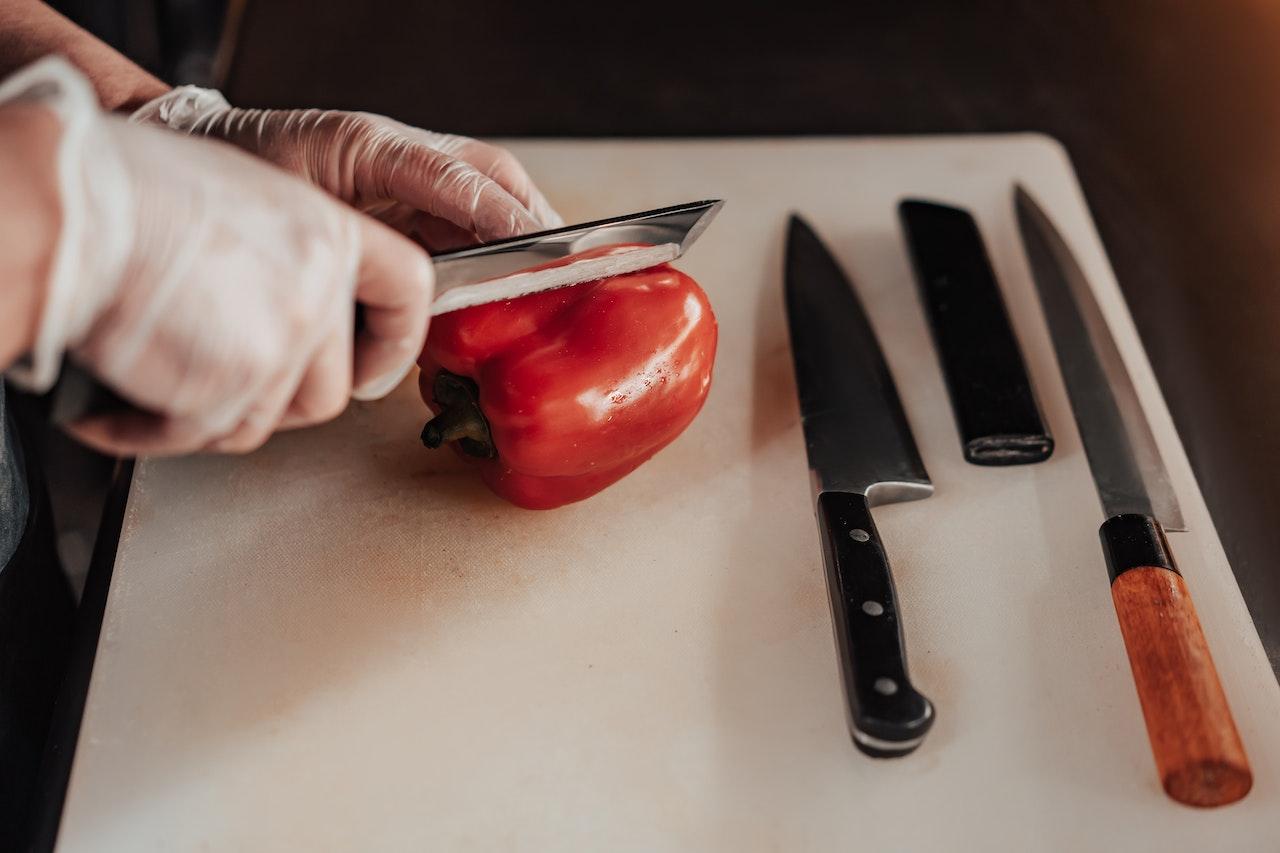Table of Contents
Dull kitchen knives can slow food preparation and increase the risk of cuts and grazes while cooking. Despite this, many people fail to sharpen their knives as often as they should.
If you’re guilty of neglecting your kitchen knives, you’ll be happy to hear that sharpening them is quick and easy. There is a wide variety of tools that you can use to achieve a crisp, clean edge on your knife blades.
Below, we’ve discussed the best knife sharpener products and tools that you can use to revive dull kitchen knives.
Use a Whetstone
Sharpening stones or whetstones are tools you can use to sharpen and hone the edges of your knives. They have a coarse surface and comprise abrasive materials that are perfect for reviving blunt blade edges.
You can purchase whetstones in varying grades. Each grade represents a whetstone with a unique level of coarseness. A coarser whetstone is better for very dull knives. Conversely, a less coarse whetstone is suitable for a knife blade that is only slightly blunted.
You can use two whetstone grades at once to achieve a sharp blade edge. Begin with the coarser whetstone and finish with the less coarse sharpening stone to create a clean-cut edge.
Use a Honing Steel
A honing steel is sometimes called a sharpening steel or honing rod, and it’s an effective tool tor realigning the edge of a knife blade to improve its sharpness and function. It aligns the microscopic ‘teeth’ on the blade that are responsible for producing sharp cuts in your ingredients.
Honing steels are available in various materials, with the most common types being ceramic or steel. Regardless of which option you choose, you can use them to revive dull knives and keep them in tip-top shape.
Avoid Cutting On Hard Surfaces
To prevent them from becoming blunt too quickly after you’ve sharpened them, avoid cutting on hard surfaces like marble or ceramic.
Instead, use wooden, bamboo, or plastic chopping boards that will prolong the lifespan and performance of your knives. This is a simple cooking hack that many people neglect!
Clean and Store Your Knives Properly
Proper cleaning, maintenance, and storage of your knives are essential for keeping them sharp, improving knife performance, and prolonging their lifespan.
You should always clean your knives after use using warm water and washing-up liquid. Use a soft sponge or cloth that is non-abrasive when cleaning your knife blades to avoid scratching them.
Allow your knives to dry (both the blades and the handles) thoroughly before storing them in a dry, cool place, such as your kitchen pantry. You can use oil when sharpening your knives to improve their lifespan.
Conclusion
You can store your knives in a knife block that protects the blades when you’re not using them. Alternatively, you can purchase blade sheaths or knife cases that cover the blades to prevent them from rusting and avoid injuries in the kitchen.




